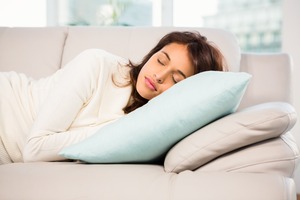
One of the side effects of sleep apnea is that it leaves you feeling exhausted during the day. As such, the idea of taking a nap can be a very tempting one, and it may even seem like it will help alleviate your symptoms. In reality, though, not only will it not solve the problem, but it may even do more harm than good. Below is a quick look at why napping might not be the best choice when you have sleep apnea.
What is Sleep Apnea?
Sleep apnea is a disorder that involves repeated pauses in your breathing while you slumber. It’s often caused by the airway becoming blocked in some manner. Every time your breathing is interrupted, your body forces you to wake up, which interrupts the sleep cycle and stops you from getting quality rest.
Why Doesn’t Napping Help With Sleep Apnea?
If you’re consistently getting less sleep due to sleep apnea, napping won’t necessarily help you “catch up.” Sleep loss is a cumulative problem, and a nap often simply won’t be enough to make up for your sleep debt.
On top of that, napping can affect your body’s circadian rhythm. In other words, it can make it even more difficult to fall and stay asleep at night. Needless to say, this can make the situation even worse if you already have sleep apnea.
So What Can You Do to Address Sleep Apnea?
If you have been diagnosed with sleep apnea, the best thing you can do is seek treatment from a professional. Traditionally, this means using a CPAP machine that delivers a constant stream of pressurized air to help you maintain an unobstructed airway throughout the night. However, if you are unable to tolerate a CPAP machine, you might consider asking a dentist for an oral appliance. This simple device can slightly adjust your jaw and keep your airway clear without the need for bulky, noisy machinery.
You can also make a few changes at home to enhance the quality of your sleep in general. For example, sleeping on your back can worsen sleep apnea symptoms; you may notice an improvement if you switch to side sleeping. On top of that, losing weight can also help, as obesity is a leading risk factor for sleep apnea.
It’s important to take the right steps to deal with sleep apnea so that you can get the rest you need without accidentally making the situation worse. Reach out to a professional today if you think you may be suffering from sleep-disordered breathing.
About the Author
Dr. Joanne Bancroft has more than two decades of dental experience. She graduated from the Buffalo School of Dental Medicine and is a member of the Metro Denver Dental Society. At her Westminster practice, J.B. Dental, she can offer solutions for patients who are struggling with sleep apnea. To schedule a consultation with Dr. Bancroft, visit her website or call (720) 458-6561.
